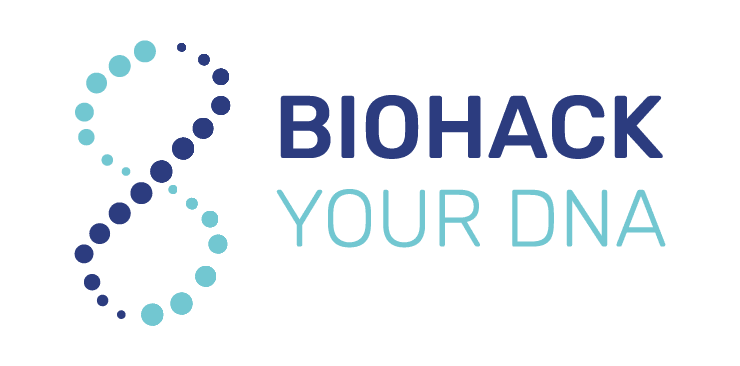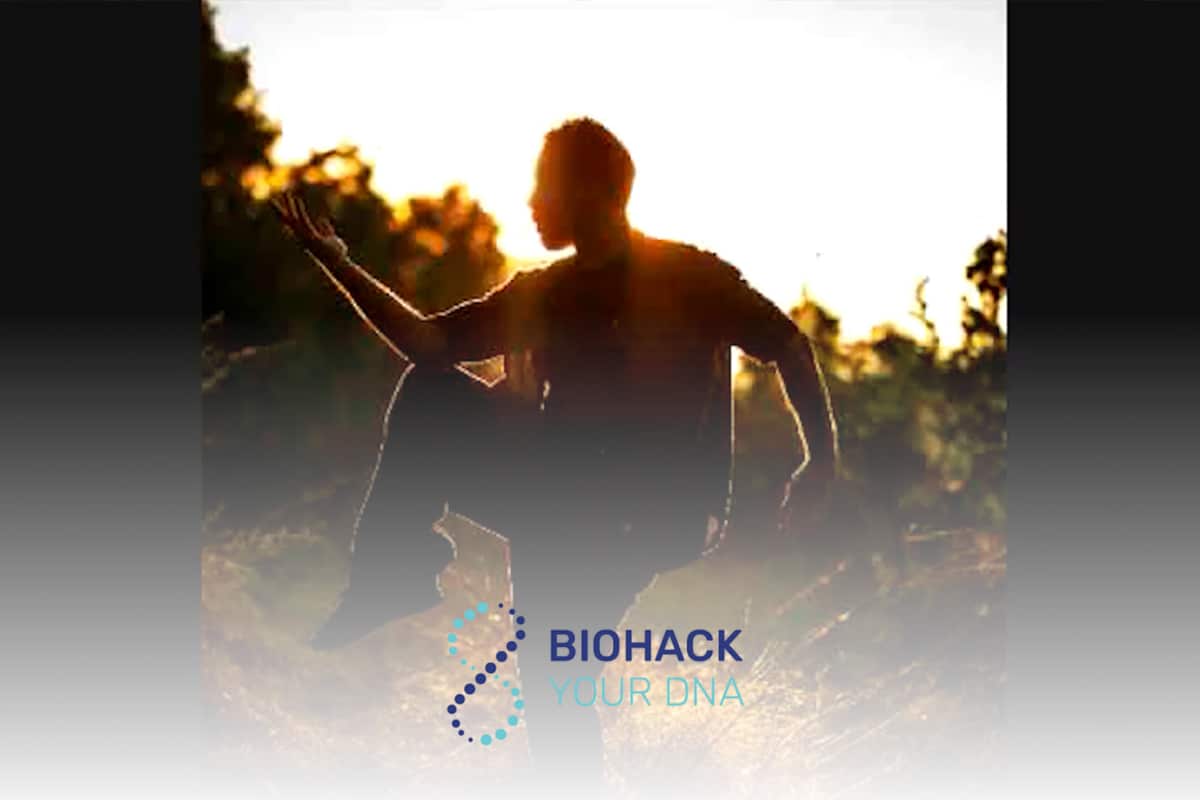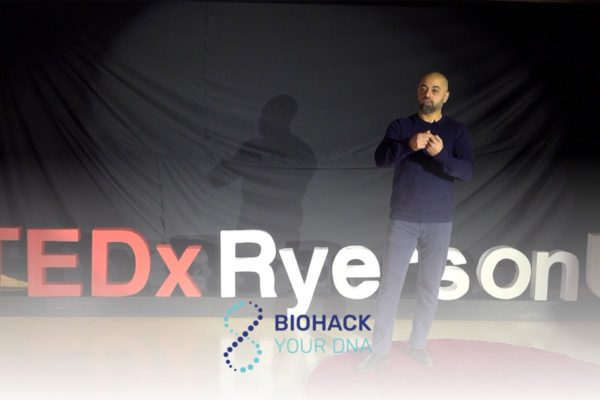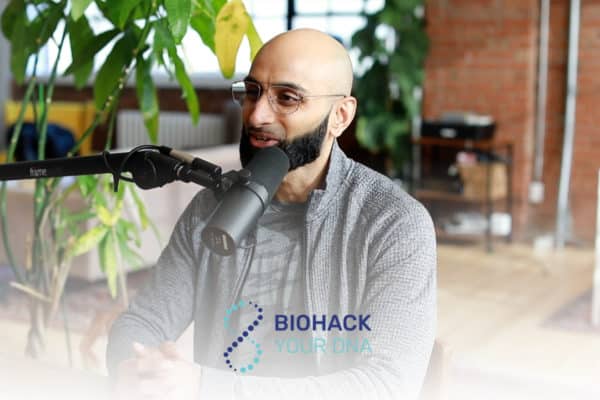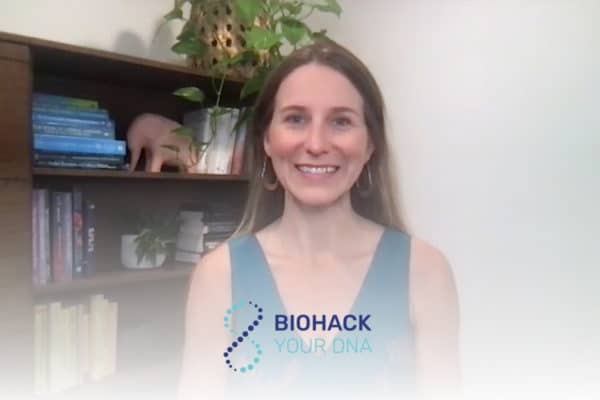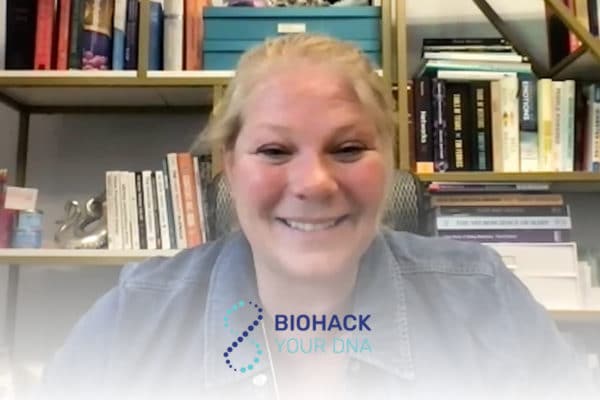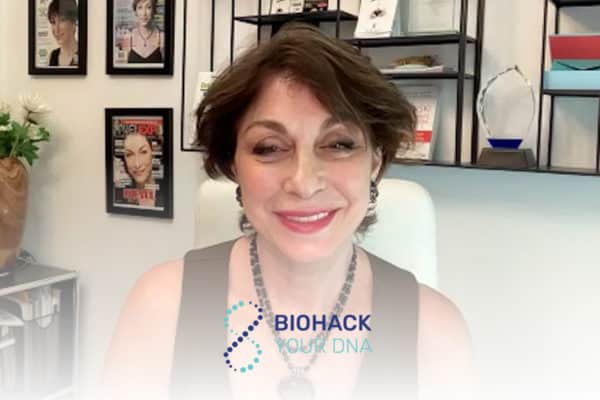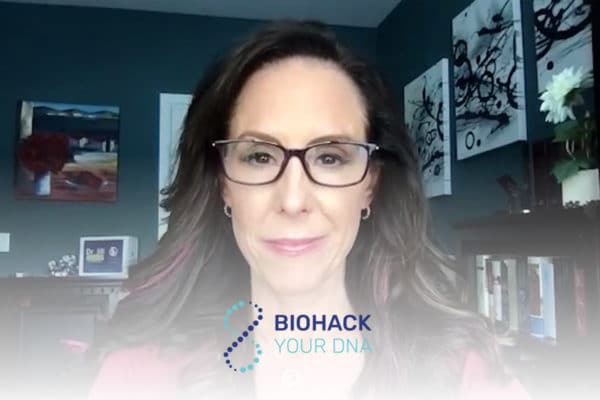Join the discussion below
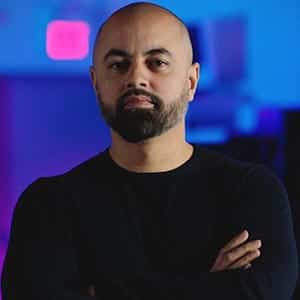
Kashif Khan is the Chief Executive Officer and Founder of The DNA Company, where personalized medicine is being pioneered through unique insights into the human genome. With the largest study of its kind globally, The DNA Company has developed a functional approach to genomic interpretation overlaying environment, nutrition, and lifestyle... Read More
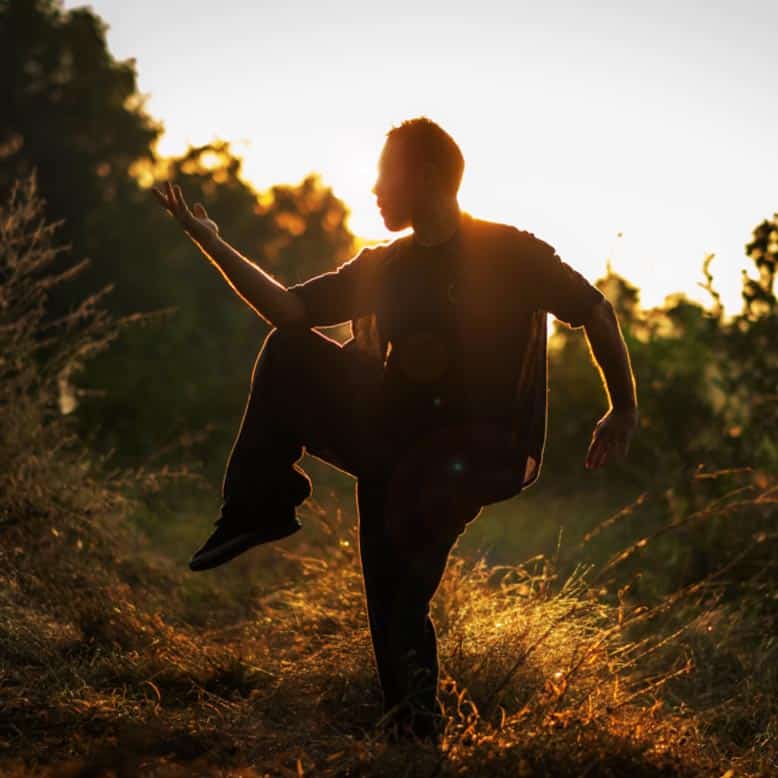
He began practicing martial arts, Qigong and meditation at the age of 7. As a student of Qigong, he journeyed all around China and the world seeking the greatest masters including northwestern part of Hubei, Beijing and Southern China, where he met and trained extensively with several true Qigong masters.... Read More
- What neuro scientist have to say about Qigong
- How to learn how to meditate on day 1
- How chronic diseases can be reversed using Qigong
Related Topics
Acupuncture, Ancient Techniques, BioHacking, Chinese Medicine, Connective Tissue, Energy, Fascia, Healing, Meridians, Neuroscience, Peak Performance, QigongKashif Khan
Hello, everyone, welcome back. Really exciting talk today. You’ll notice as we go through this, that our guest is off camera, which speaks to all of what we’re gonna dive into. It’s a Taoist principle in teaching, and we’re gonna dive into the why. So Tevia Feng is gonna talk to us today about qigong that inner energy, something that we kind of think you know about it. We hear it in different terms. You hear about it kind of like as energy as this, as bark as some people call it, this connection we have, what is it, how do you access it and how does it heal and make you a better person? There’s no better person to talk to than Tevia. Tevia, thanks for joining us today.
Tevia Feng
Thanks for having me honor to be here.
Kashif Khan
This is awesome, and so what is it? So today you’re off camera, and I respect that. I would like to let everyone know like what’s going on there?
Tevia Feng
Well, I joined a Taoist sect years ago and I took a vow not to become famous, not to promote myself and to only promote the art and to be a conduit, a channel for the art of qigong. And so that’s my mission is not myself, but the art of qigong and it’s humbling because we have that. We all have that natural desire or instinct to be out there. And I’ve had a million marketing people tell me if you just went on camera and you just promoted yourself, we could go this so much bigger, but I must keep this vow. I take my vows very seriously. And so, yeah and so I’ve actually grown much more humble because of it, so.
Kashif Khan
That’s honestly in your position, ’cause I mean, people may not realize it, but there’s thousands of people that have gone through teaching through you as a conduit, but your conduit to the actual teachings, like you said, not to your own community, your ecosystem, although you’re supporting them and helping them, it’s really about you being this channel that leads them to what you need them to know, which is a beautiful thing.
Tevia Feng
Exactly.
Kashif Khan
Yeah, so for anyone that’s listening that hasn’t even heard the term before, qigong, in a nutshell, what are we talking about?
Tevia Feng
Well, qi is simply energy. So if we look at the classical Chinese character for qi, it’s a rice kernel meeting gas, so it’s a rice kernel popping and it meets gas, so it’s combustion, so you it’s alchemy, you put two and two together and it creates energy. So just like when you breathe in the word for breath is also has qi in it. So when you breathe in, you take an oxygen and that creates energy in the body as anyone can understand. So gong means the refined skill. So it’s the refined skill of working with energy and that’s all it is. That’s a very broad, general definition for qigong. But what I could say about the qigong that we do is imagine Tai chi meets yoga, meets meditation. That’s what it is, that’s what we have in our system.
Kashif Khan
So there’s a specific sort of system or process through which you access this and call it, maybe manipulate this energy-
Tevia Feng
Well, yeah, there’s over 3000 kinds of qigong that are documented today. So within those thousands of kinds, there’s so many different variations with completely different principles. I’ve learned about 50 plus styles, which seems like a lot, but it’s a drop in the bucket. So every style has a different purpose or a different principle. And so I’ve really stuck with this style of qigong that’s for healing and maximum potential and peak performance. That’s what turned me on about that kind of qigong those styles of qigong.
Kashif Khan
So is it like people can, if they want to explore this, they can go through this library of the various types of qigong and think here’s my outcome, here’s the goal I’m seeking, and this is the best sort of form.
Tevia Feng
Right, well, exactly. Like I’ve worked with people who have cancer. I’ve worked with people who have difficulty to treat illnesses like MLS and that we’ve had incredible results. And I teach them a little bit differently than the person like I’ve taught hedge fund managers and who are like making, 20 million, $200 million decisions in an instant. And they need that peak performance. They need to be thinking differently and taking out the emotion. So I teach them differently. So I’ll teach them a different form of qigong for achieving different purposes, if that makes sense.
Kashif Khan
That makes a lot of sense, and that’s incredible. It reminds me of a discussion we had with a gentleman that worked on PEMF. So electric pulse, where you are talking about, taking your innate internal capacity and your innate energy and sort of accessing it or manipulating it for your benefit. Whereas there’s other sort of forms of therapy where you’re adding energy to the body so that the cell does whatever it’s doing better. So what you’re suggesting is that what we do internally, you can sort of supercharge that by accessing and kind of speaking or communicating to this energy.
Tevia Feng
Exactly, so if you have a something that you’re trying to achieve in your life, you need to be at the top of, and be at the best you possibly can be. So whatever it is like, I’ve also worked with world champion martial artists, like the female 2019 Karate Champion, Kyokushin, from Kuwait. She won the world championship in her competition in the final match. She was doing our qigong, right before she fought. And she said, it got her into a super concentrated mindset and she was able to conquer any emotions that were getting in her way. And then it also raised her blood levels up and raised her blood pressure up to the right amount. So she could start to regulate her system. Okay, so you’re actually able to self-regulate and gain control over the autonomic nervous system that they said for many years, we couldn’t control. But now we found through cutting edge science that yes, you can control the autonomic nervous system. So I can regulate my immune system. I can regulate the nervous system, the PNS, the parasympathetic nervous system through these ancient techniques that the Taoist been doing for thousands of you years. But now I’ve applied neuroscience. I’ve worked with neuroscientists to understand why it works the way it works and how it works from a neuro scientific framework.
Kashif Khan
So when you’re talking to sort of conventional, call it modern day sciences, ’cause this is an ancient art and an ancient science in itself, are you, when you speak to them, are we talking about the same thing where a typical, say functional medicine doctor is talking about energy rooted in the mitochondria, the cell, the production of ATP. Are we talking about the same thing or is it a different form of energy?
Tevia Feng
That’s a great question. So I wouldn’t say I’m an expert in mitochondria, but what I understand is fascia.
Kashif Khan
Right?
Tevia Feng
Fascia is the modern sports science and what they’ve shown through fascia. So you’re just for those who don’t know what fascia is, underneath the skin, you have this fibrous bluey web that surrounds and capsulate the muscles and the organs wraps around the bones and becomes the bones. So the bones are actually the hardest part of your fascia. So it’s this connective tissue that runs throughout your entire body even encapsulates the brain. And so this fascia, when you coil it and uncoil it, they can generate an electrical charge that they can measure with a scientific instrument. That is what, my master said, when you coil and uncoil the meridians in the body, you generate qi, but I realized these connective tissue lines are the meridians are the connective tissue lines. What Thomas Myers, termed as myo fascial meridians. So he was a manual therapist who dissected cadavers and found that there was these connective tissue lines in the fascia running through the body. He knew nothing about Chinese Meridian maps, measured them up. They were almost identical to the Chinese medicine, meridian maps. And so that was a real awakening moment for me in realizing that there was actually a science that could explain what this qi stuff was, that was looked as an esoteric concept is actually grounded in something real. And it’s tangible.
Kashif Khan
You I’ve seen when you walk into say, even traditional Chinese medicine purveyor, and you’ll see like the acupuncture map on the wall. And it’s so highly, extremely detailed. And what they’re saying is they’re accessing sort of cheap points. And you wonder, how was this research done so many hundreds of years ago without current the modern day tools. But in fact, maybe the modern day tools are preventing us from accessing ancient knowledge. So when you speak to your masters, have they dove into like, where did this even come from?
Tevia Feng
Well, that’s a great mystery that I still have not answered myself. And that is one of the things that I’m amazed about is whoever, put together this system, it’s mind blowing to me, especially like you said, we have all these modern tools now and we’re starting to discover what they found thousands of years ago. I just blown away but I still don’t know to this day.
Kashif Khan
Yeah, and you see, that’s true in a lot of areas, like, a lot of sort of synthetic pharmaceutical solutions, mirror what has been known in ancient wisdom, just at add different dosage or just synthesized, so that it’s scalable, right? And you wonder how do people figure these things out? So there’s a clinic here in Toronto where I am that in terms of when it comes to acupuncture, I went there once to meet them, ’cause I was told that they would do amazing work. And what the master there told me is people that use needles are still in training because to access qi, the needle is sort of a, call it an amplifier of the work that you’re doing. And she does acupuncture using her hands. She literally is sort of over and above the body. And she’s saying she’s accessing and manipulating the same sort of cheap points or targets on the body. And then needles are just for the person that just can’t do it that way. Does that make sense to you?
Tevia Feng
Oh yeah, because my I first medical qigong master, I studied with, he said something similar. He used his fingers at like instead of needles. And he has had thousands of patients with really difficult to treat illnesses and he had incredible success with that.
Kashif Khan
It’s mind blowing when you think about it, but you see it work, the proof’s right there.
Tevia Feng
Yeah.
Kashif Khan
So how did you get into this? Where did the, where did the journey start from? Here’s who I am, and then all of a sudden, this is my focus.
Tevia Feng
I was born with chronic illness.
Kashif Khan
Oh wow.
Tevia Feng
And my parents didn’t want me to be on medications and in hospitals and with doctors, my whole life. So my grandmother died in early death of a respiratory disease. My aunt died of colon cancer. I’ve got heart disease in my family. My sister was born with pneumonia. My brother was born with rickets. I had three strikes against me, I had no wiggle room to, and my body was weak, very weak. And my father was into qigong. And so he knew what qigong master that could take me on. So every day after school, I went and trained and I learned how to strengthen my organs and strengthen my energy and my body and gain like a wellspring of energy and focused my mind and concentrated and become a powerful force.
So I took, I be, from this weak feebly kid, I gained real solid strength. Now, fast forward when I was a teenager, I was in a brutal car accident. Doctors told me I had to have surgery on my spine and my knee. And there was no way around it. They said, I, and I was really scared to go under the knife. It’s scared to be cut open. And I know that once you have spinal surgery, it’s never gonna be the same. And my master, he said, don’t do the surgery yet. Try this qigong, he gave me this simple qigong exercise, which is this wave like dragon, like motion of the spine. And I did it every day with this coupled with this deep, slow methodic breathing. And every day I did this qigong just for five to 10 minutes a day, or anytime I felt that back pain and little by little it dissipated. Now it took me four full years to fully recover, but I never had surgery.
And now my spine is in better shape than most people I know half my age. And I attribute it to this qigong. And the Chinese, the ancient Chinese have a saying that, “you are the age of your spine.” So your, your number means nothing. And it doesn’t matter how people judge age these days about, your beauty, but it doesn’t matter how beautiful you are. If you don’t have a spine that’s fully functional, that’s soft and supple like a baby. And that’s what I strive to achieve is keeping this really healthy spine. And the spine connects everything, ’cause all the organs hang off the spine and the spine connects to the brain. And as we age our brain atrophies, because we don’t have sufficient cerebral spinal fluid pumping to the brain. And what this qigong does is it stimulates that cerebral spinal fluid to pump more easily into the brain. So we get deeper circulation into the brain. That’s why we have clearer, sharper thinking, when we do qigong, we can master our emotions with qigong. And at the same time you get the mobility benefit. You get really amazing mobility.
Kashif Khan
So is it more that, so the body’s resilient, the body’s designed to sort of survive and repair, and come back. Is it that you are taking those existing systems and processes your spine was damaged and the body gets to work preparing, and you’re accelerating that, or is it in another process entirely that a normal repair or sort of survival process doesn’t accommodate and doesn’t do, and you’re adding a layer to it. Is it so that’s what I’m trying to understand, is that supercharging, what we already you do, or you’re adding a new layer that somebody hasn’t accessed yet?
Tevia Feng
That’s a really insightful question. And that’s one of the betterst questions I’ve had in a long time actually. And that makes me think and how I can answer that is this is you have your own energy, which is we call your prenatal qi. So that’s like in your genes, your genetics.
Kashif Khan
Right, okay.
Tevia Feng
So then you have acquired qi so you can acquire qi, so for example, I’ll just give you a tangible example. You go stand in fresh air in the mountains versus in a polluted city.
Kashif Khan
Right.
Tevia Feng
So you can get that energy from nature and bring that into the body, combine that with your existing energy that you have, and you need to create flow of circulation. ‘Cause what qi does is it’s the catalyst for the movement of blood. So qi is the catalyst us from the movement of blood and what the key, what we found in these, in the clinics that I worked in is that patients who were very ill had lack of circulation, they had to blockage and it wasn’t able to circulate. Once we were able to break through that, clear those blockages. Now we’re able to start to oxygenate the blood, but we need that, we need healthy food. We need good supplements, we need good air. We need those healthy things. And we need healthy people in our life. ’cause all of that is energy. So they call ren qi, is people qi. So you get energy from people.
If you’ve been around someone who brings you down and that’s ’cause they’re qi and your qi don’t mix well together, either in that moment or not at all right, it’s bad chemistry, we call it chemistry, right? So you can get qi or you can get energy from nature from the sun, from food, from supplements, so gu ci is the food qi. And so the Taoists were playing with supplementation for thousands of years, ’cause they’re seeking that immortal elixir so they’re seeking ultimate longevity. So I called the Taoist, ancient bio hackers. What we would term them as bio hackers. So they would like drink mercury to try to like attain longevity. 1,000 years later they realized that didn’t work. So, but they’re always like searching for the thing that’s going to bring them that immortality. So yes, you can get energy from nature, from food, from people and you have it within your own body.
Kashif Khan
Is this sound soul aligned with what we tell people genetically, meaning that you have this innate capacity, you have your wiring, here’s who you are. And then based on your epigenetic decision, what do you eat, what are your environmental exposures? What are your lifestyle? Those two things together equal your net result, meaning that you’re wired for this, you did this. And it was either matched or not matched, which means good result, bad result. So someone’s gone down that path. You are saying that you can kind of support this part, that here’s your innate capacity, we can bring that up so that, but then it would make me think that in order, if you’re increasing blood flow and you’re getting that circulation going, that it needs to start with. Well, let’s make sure that the blood is clean and pure and if you’ve eaten the right things and you’re not full of toxins and you’re, is there any sort of therapeutic thought around that or does this qi itself resolve that?
Tevia Feng
Well, absolutely, I mean, I’ll never forget. We had a student in our class who was working a night shift and he said, “I’m taking all the medicines and the supplements and I’m doing qigong and I’m not getting better.” And my master said, “what time are you going to sleep?” He said, “I work a night shift.” So he said, “oh, so you’re not sleeping, you need to sleep between at a latest at 11:00 p.m to 5:00 a.m. ‘Cause that’s the organ rejuvenation time. That’s when the organs get their rejuvenation of qi. So, and so you have, ’cause you have the Chinese organ medicine clock. So each different hour is related with a different organ system. So it’s the same thing. Like you can do all the qigong you want, but if you’re not eating the right foods or taking the right supplements, you won’t, you’re just like taking a few steps back, one step forward and two steps back. So all of those things are important. It’s all part of the whole, there it’s a cog in the wheel.
Kashif Khan
Yeah, it makes sense. And sorry, just for my curiosity, Taoist principles and qigong are, qigong is found in many different cultures, not just in the Taoist culture, correct?
Tevia Feng
Correct, that’s a great, yeah, great question, so you have five main branches of qigong. Okay, so you have Buddhist qigong, Taoist qigong, you have martial qigong, which is like for self defense, you have medical qigong, and you have Confucianist qigong, so this is, I’m just referring to Chinese qigong at the moment. I mean there’s qigong in India. There’s qigong in different, there’s qigong in Korea. So I’m not, I’m just talking specifically about Chinese ’cause that’s the area that of my expertise.
Kashif Khan
Okay, yeah. I think that there’s also probably many cultures that are practicing qigong, but don’t realize that’s what they’re doing.
Tevia Feng
Yes.
Kashif Khan
You know, accessing energy, understanding that there’s certain exercises they can do that help with certain things. They don’t realize that that’s what it is. It’s just the discovery of here’s the science, which happened some time ago. So when then when you say, when you talk about food and eating and how that affects your energy, is there sort of, what does that diet look like? I’m curious about, the belief in the keto diet, vegan, paleo, et cetera. And there’s been so much science in this art, right? This is really a combination of science and art. What is the thinking of what is, what does food look like?
Tevia Feng
Well, that’s why I’m not a believer in one size fits all. I believe everyone has different DNA as you say, or genes. And so I believe that different people have different needs, but there is some common themes that Chinese medicine has with diet and that is eating the five colors. Okay, we have the five elements in Chinese medicine in qigong and the five elements are earth, fire, wood, water, and metal. Okay, so these are the five main elements that we have that are in the earth and that are within us. And they have different relationships with tastes like sour sweet. So you need to have the different five flavors. You need to have the five colors and these, by incorporating that into your diet, that is going to help your Qi significantly ’cause you get the Qi of the color and also colors make you feel good. So incorporating a more colorful diet. When you see a colorful plate food, you feel much better than when you just see like just everything is all brown, right. So, or just like a bowl of just simple porridge, it’s all white.
Kashif Khan
Yeah.
Tevia Feng
But you see, like a colorful salad, different color vegetables and so on and so forth. And you feel that vibrancy and you take on that vibrancy and also those five different tastes stimulate different senses and when we look at it from a neuro scientific perspective, it makes total sense because actually different colors and different flavors stimulate different regions of the brain. So
it totally makes sense to me that Chinese medicine aspect, whether you should eat meat or be vegetarian, I don’t get into it because I think that’s individualistic.
Kashif Khan
Right.
Tevia Feng
It’s it depends on the person.
Kashif Khan
Okay.
Tevia Feng
But the five elements really make sense to me and resonates with me.
Kashif Khan
It makes sense and it’s aligned with what you’re hearing in science now where food is such a crisis, especially in north America where you want an American disease, go eat American food and you’ll probably get it. So that’s where, it’s become such an important element in terms of functional medicine and precision health that you’re seeing a lot of this, you’re seeing the books and you’re seeing a lot of the blogs and the Instagram posts talking about exactly what you just said, which was discovered how many hundreds of thousands of years ago, we’re just coming back to it now. There’s also, there’s a gentleman. We spoke to a few weeks ago who, he’s a regenerative farmer. So he’s very much into the science of the soil and the science of the plant. Meaning it’s one thing to eat a tomato. It’s another thing to eat a tomato. Meaning that is that thing. Really what it was meant to be that was growing in a greenhouse that has no life in it. So do you consider call it maybe the Qi of the plant, like when you’re eating or consuming something that in itself has energy in life that’s meant to be sort of transitioned to you.
Tevia Feng
Absolutely, I mean, the best food in the world that you could probably eat is wild. As long as it’s growing in soil that’s healthy, but I totally agree with everything you just said, where the food is produced, how it’s produced, even the energy of the person who’s like cultivating it, all of that affects it. When you look at, there’s in Japan they have umeboshi balls, so these are like they, these are hand rolled balls and they say the person’s energy roll that ball really intensely and makes it really, really right and small. And so everything that goes into that plant or whatever’s being cultivated is important and has a direct effect on the energy that it’s going to give you.
Kashif Khan
Yes, and it makes sense ’cause people, the thinking is, when you think of it sort of at the level we’re speaking of it, some people are like, ah, that sounds like fufu. Like doesn’t make sense. But you talk to the actual scientists that study energy and look at the science of it, it’s energy moves. When you open a hot door, a cold door, the temperature changes the energy shifting, same thing with what’s in you, what’s in the food, energy’s constantly transitioning and moving. And so the science of it backs up what we say. We just don’t apply the science to this context of food and who we are and all that stuff. We use it for other things so we don’t learn that. But you know, another thing I was thinking when it comes to, what we’re eating, how we’re exercising, a lot of people may, that are new to this may not understand what does qigong look like in implementation? Meaning, what is your average week? What are you actually doing? What are the practices other than how you eat? Is there a prayer or is there movement? What does it kind of look like?
Tevia Feng
That’s a great question. So what you you do with qigong is you start by settling and rooting into the ground and really feeling the energy of the place that you’re in. So I like to go barefoot outside on the grass, or if I’m on the beach right in the sand or wherever I am, I like to just feel and the ground, then I start to sense the sounds around me, listen to the sounds around me. And then I start to feel the energy around me. So you start to utilize your senses, you exercise your senses in that way. And then I connect to the cosmos through the crown point. So the cosmos, so you have your earth Qi through the feet. You have what they call heaven Qi, but it doesn’t have a religious connotation. That’s not like the religious sense of heaven, it’s the cosmos. So that is we connect with that Qi like the universal Qi and what we connect with is like a violet light. And it was interesting because when I looked at the scientific telescopic images of the universe, they’re actually there’s violet light in the universe. So I was blown away by that-
Kashif Khan
Yeah.
Tevia Feng
Correlation, and so you draw that in and you draw in the energy from the earth and you draw in the breath and you bring it all into your center, which is called your which is your, it’s in the lower belly. In Japan, they call it your hara. Dancers know it because dancers use it as their focal point as their center of balance in their body. So it’s deep in the lower belly. And if we look at it from an anatomical perspective, it’s where your digestive system and your reproductive organs reside. So that’s where the energy is produced. The most powerful energy of your life is your reproductive energy, sexual energy and your energy where you digest your food. So those are the two most powerful things, and they’re both centered in the lower belly. So we draw in the energy into that area, which stimulates the digestive system and the reproductive organs.
And these two, when you stimulate the digestive system and the re productive organs, we know this will help extend your life. Now, then we go into like a gratitude meditation where we can start to really tune in to something that really makes us grateful. ‘Cause then we can start to change our mind state. And now we can do our qigong, and we go into this dynamic qigong, where we have many different exercises that work on twisting and deep ringing out of the organs of the meridians through this coiling and uncoiling motions, through twisting through forward and back side to side, it moves all around. Some movements are like a dragon. Some movements are like a tiger and they evoke different mind states. So, and this originated from originally 5,000 years ago, they had the Woo tribal people, were dancing like these animalistic dances around a fire like shamans, right? And they got them into these trances, what we call in neuroscience, a flow state. And when you’re in a flow state, that’s when magic really happens and that’s when healing can happen. And that’s when concentration reaches its peak. And so we tap into these flow states while we’re in movement. And then when we’re finished, we go back and we start to do deep, powerful breathing exercises of breath control and working with different elements or energy to bring them in. Like I might look at the morning sun and with my eyes and breathe in that energy and feel it coming through my eyes and feel the golden light coming in through every cell of my body, drenching it in this healing light.
And that really starts to change your physiology. And what I realized about qigong something very powerful. That’s a very good book called “the Intention Experiment,” I think it’s called. And in this book they did scientific research on people who had powerful intentions, who were able to change their physiology, through intention. And you can starting to, so what happens is, and when I started studying neuroscience, when I got a neuroscientist teacher, I realized that yes, what you’re doing is you’re believing in something so powerfully that it actually has a physiological reaction. So you’re inducing a physiological reaction through strong, powerful honed intention. Does that make sense?
Kashif Khan
It all makes sense. And it’s everything you said, is kind of like taking bits and pieces of all these different bio hacking and wellness things that you hear from different people. And it’s just been bundled up into here’s optimal human performance, right? Here’s how you actually access your body and use it properly. ‘Cause you hear this stuff but you hear different pieces of it from different people that specialize in those various things. And even just that last concept of thought. And you know, if you think about, like you said, sexual energy, think about something arousing. It changes your physiology immediately. So for some people that hear, oh, thought can change things. Oh, that doesn’t make any sense. Well, go think about food, all of a sudden you salivate, does your body change? It does, and that’s how powerful thought is. To create, but also prevent, it works both ways. And the other thing I heard you talking about there was the meditation which is being spoken of in so many places now. Do you think that prayer, the religious prayer if done properly where you’re truly like through gratitude, giving, trying to connect, is it that you’re sort of accessing this external energy and this is why you’re manifestations can sort of come true and you’re- or is it more like you’re just entering a deeper meditative state and you’re accessing something else? So how does that connection happen?
Tevia Feng
I would actually say both.
Kashif Khan
Oh wow.
Tevia Feng
I say it’s a mix of both because what we say is you want to open your, they say that means open your meeting of 100 points, which is your crown point. So you open that to the cosmos. And then the energy can come and flow through you. But you’re also, you have to get into that meditative receptive state, to be able to do that. And then you can draw that in. So I would definitely say it’s a combination of both.
Kashif Khan
You gotta kind of open the door and then invite it in.
Tevia Feng
Exactly, I mean, prayer is used in all religions. It’s so ancient, there’s a reason for it that it’s so powerful and millions and millions, hundreds of millions, if not billions of people do it, for thousands and thousands of years. So it has validity to it without a doubt.
Kashif Khan
Yeah, and I think some people understand the dogma of it. There’s like an obligation where I have a belief and I have to pray for a certain reason or a certain time. And then there’s people that extract additional benefit from it, which that wisdom and why it was taught in the first place. You can tell me what you think about this, but there’s a gentleman that I know that once a year goes into a deep sort of meditative prayer where he’ll literally lock himself into a room for a week, no access to people, no access to anything he’s in this room, that’s all he does. And he says that he gets into a state that’s so deeply connected , that he feels like he’s literally traveling through time and space. That fabric of the universe, the energy, so can your soul actually lose your body? I don’t know how and what he’s claiming he’s actually doing. But he’s saying by the end of that week, he’s in such a deep meditative state that he’s outside of the awareness of his body. And he like kind of moving around the fabric of the universe.
Tevia Feng
I feel like I can relate. I mean, I have a qigong technique that I do called the white tiger breath. And I get into that state where I lose the sense of my physical self. And I even forget that I have a physical existence and I feel like I’m woven into this, the fabric of the universe. So, and yeah-
Kashif Khan
How long does it take to get to that masterful level? Like how much practice say?
Tevia Feng
Well, you know to be direct, I’ve had students come in and be able to access that, the first time.
Kashif Khan
Wow.
Tevia Feng
Yeah, but that not every doesn’t mean everybody’s gonna get that, but, and you’ll get glimpses of it at first, the more you do it, the more you can get into it until you can start to get into it on will.
Kashif Khan
Wow.
Tevia Feng
Yeah.
Kashif Khan
Wow, that’s incredible. There’s so in that state, I guess things like manifesting, connecting and drawing, what you want from the universe just must be a much easier thing to do.
Tevia Feng
Yeah, well, I gotta tell you though, there’s a caveat. I stopped teaching those techniques to beginners because I realized there was some people who were going off the wrong way on it. So what I do now is I teach those techniques after somebody’s been with me for a period of time and I have a relationship with them that I can trust those techniques with them because you really have to be careful with it. And because you’re accessing something very powerful and it’s important to also have a guide with you that understands how to do that and what that means. So you can ask questions or share any problems that you run into on the way.
Kashif Khan
No, for sure, that makes a lot of sense. one of my favorite lines from “Spider-man” is, “with great power comes great responsibility,” right. So you gotta remember that. So then we’ve spoken about a lot of elements of how things benefit you and you yourself healed and of people are listening today, are coming here thinking from sort of the health perspective, meaning whether they are ill or they don’t want to be ill, they’re preventing something that maybe dad or grandma had. Tell us about people that you worked with in terms of their wellness journeys and how they’ve been able to heal and what they did and how they experience that.
Tevia Feng
Well, I’ve worked with literally thousands of people and I’ve seen so many different types of people and I’ve found some very similar underlying common threads. And so for example, lot of the people that I worked with with cancer, they had these, like they had things in their life they couldn’t let go of, whether they felt victimized and they felt they couldn’t forgive the person who they felt victimized them. And they couldn’t let go of that feeling victimized. And they, or another person couldn’t let go of feeling sorry for themselves, feeling that their life was miserable or another person who was so angry, they helped deep seated anger towards others, feeling that they were screwed or cheated by other people. Now, if you’re participating in society, chances are you’re gonna encounter someone who’s gonna cheat you, screw you and try to, they say, Tom Petty said, some say, “life will break you down, break your heart and steal you crown.” Right? We all go through that. But the difference be between the people I know who are able to overcome those things, like the qigong masters that I study with, I’ve seen them go through really intense things in their life.
Like I watched, one of them lose one of their children to death and watching him go through that and watching how he overcame that with qigong and within my own life, the turmoil that I’ve gone through, the roller coaster of life, it’s been through with me through thick and thin. When I hit rock bottom, qigong allowed me to let go and let go of that anger towards other people and forgive. And that’s what I’ve seen people who can let go. And that is taught in actually many religions too, as well, letting go the power of forgiveness. And in our qigong, we have that practice of letting go of emotions, letting go of anger, letting go of any depression, sadness letting go of it all. Now it doesn’t and mean we ignore it, and push it, stuff it under the covers. It means we connect with that.
And then we can let it go because that actually stays in the body physically. And they’ve proven that with fascia science, that emotional trauma is stored as memories as physical memories and the fascia, just like when you cut open a piece of wood, you can see the trauma it’s gone through in its rings. When you cut open a tree. And the same thing with the fascia, we store kinks and knots. That’s how emotional trauma is stored. And if we don’t release that on both a physical and a spiritual level, then it will stay faster and grow.
Kashif Khan
Yeah, and some people who, again, it’s, because it’s not call it like chemical or clinical in terms of what you’re saying. Some people don’t believe it. But if we look at the science of it, the genetics of it, it makes so much sense because we know that there’s certain genes that will determine to what degree do you imprint trauma and pain, PTSD. And some people genetically are much less prone, get in a car accident, walk away, jump an Uber like it didn’t even happen. And some people for six months, can’t go down that street again, because of the trauma. So what we learn genes, drive cellular processes. So in order for you to imprint and remember that there’s a neurochemical, but there also has to be something physical. And this is the difference between medicine today is all chemical, biochemistry. But the physics is sort of the ancient art that we lost, which is what you’re talking about.
That there’s a physical physiological change, which is why you retain, why you imprint, why you remember, why there’s trauma. So we know scientifically that there’s genes that drive it, but what haven’t answered yet is what are they driving? What’s that actual physiological thing that happens. And that’s what you just described that emotions literally are stored physically, right? And we know that disease for the most part, everyone agrees is rooted in inflammation, right. But what you’re saying is that there’s sort of some cancers example, that are rooted in emotion. And that’s another beautiful thing you brought up because the inflammatory load that leads to diseases we’re again looking at the sort of medical state that here’s the state, that causes the disease, but what caused the state, right.
How did you even get there? It could be environmental chemicals, whatever, but it could also be emotional, and we’re learning. And people say this that you, your emotions drive thought, which and we’ve already agreed that thought drives physiological change. Which then could lead to these diseases. So there’s connecting all these dots and finding people like yourself that have a really big piece of the story that has been missing from sort of the science part of it, right. So it really opens your eyes to like the things that we kind of think we know, well, it’s been known for hundreds of years, why, and now we just have to put the twos together and we get the whole story, right. So it’s true these kind of eye opening to me and mind blowing. So what does your routine look like? Like what does your sort of qigong routine, your days, your weeks look like?
Tevia Feng
My qigong routine or my daily routine?
Kashif Khan
Yeah, your qigong routine? Like what do you do to maintain where you’re at?
Tevia Feng
Well, I like to go to bed early. I like to be in bed no later than 10:30 and then sleep by 10:40 p.m at the latest, because then I’ll be asleep by 11 and that’s what I wanna do. And then I wake up nice and early. I wake up with the sunrise. And you get much more energy that way, when, and that’s like a Taoist principle of harmonizing yourself with nature. And so when you follow natural energy, it’s like surfing. You’re gonna have more energy when you harmonize yourself with the cycles of the sun. And so I wake up early with the sunrise. I have some water use the washroom, and then I go out and I do my qigong in the sun rise. And then I’ll spend time doing, I do different practices depending on what my body needs in that moment.
Sometimes it’s more intense, more fiery qigong, other times it’s more soft, gentle, and watery qigong, so gentle movements. And other times throughout that practice, I’ll be doing standing qigong where I’m just standing and breathing. And I live in a place with a beautiful view. I mean, I’m looking at mountains and ocean and I just take that in and I absorb it. And as I breathe in, I feel myself it’s coming into my body. And I just, like I said, I stare at the sun with my eyes closed it’s like I’m drinking the sun that’s what it feels, feels so rejuvenating and healing. And like I had COVID a while back. And I just shook my body for 45 minutes in the morning sunshine. And I felt so good after that 45 minutes straight, just shaking my body out, just shaking my whole body. It’s a Taoist exercise of letting go and I was sweating, I felt great.
I did breathing exercise, I came back, I felt great. And I knocked COVID out the third day. I had, so I had two days of a fever and I had to regulate it with qigong. I regulated my body temperature with qigong. So I was able to, like, when I got my fever and my headaches, I did a specific breathing technique ’cause I sometimes I couldn’t get out of bed. So I stayed, did the breathing technique in my bed. And I was able to release the fever and bring down my body temperature. And I was able to stabilize it, release the pain and then go into sleep. And so that’s why I only had COVID for two days. And I attribute to the qigong and some good supplementation too. I took some really good supplements too, but so basically my daily qigong routine is balancing and regulating. So assuming I’m not doing anything, I’m not outside and a sunset comes, I’ll do another round of qigong and get that sunset energy, and kind of recede into the night. So more calming meditative, contemplative qigong. And always with qigong, we always have meditation with qigong, the movement is actually meditation and movement, but then you actually stop and go into complete stillness and you go into different types of meditation with that and gratitude meditation, which some people might equate to a prayer. I mean, you could even equate this stuff to prayer in a sense. We might just call it something different.
Kashif Khan
And in that meditation, that’s sorry, we taking a longer time, but one other thought is, some people say, I just can’t get there, to that meditative state. So is meditation like eliminating and emptying your head? Or is there more like finding something to focus on, or is it a combination of, how do you actually get into that state?
Tevia Feng
Well, that’s a great question because so many it’s a mystery to them. It’s a, and it’s actually quite simple. So you start off the most simple meditation there is, and that’s easy to get into is just following the breath in and out of the nose. Then you can follow the breath into your lower belly. And see what you’re doing is, when you have a lot of ex strenuous thoughts that are thinking, excessive thoughts, it’s taking up real estate in the brain. What you wanna do is take up real estate in the brain with a single focus. Okay, so from a neuro scientific perspective, by focusing on one thing, it’s going to take up more real estate in the brain.
So you don’t have the energy or time or ability to focus on too many different things or have ex strenuous thoughts. So focusing on the breath, then I can focus on something as simple as, okay, I’m breathing in. Like I said, the sun and I’m focusing on the feeling of that sun coming into me, I feel the warmth coming into my eyes, I feel the warmth go into my face, I feel it going into my throat, I feel it going down my chest. So we bring what’s called interoceptive awareness as a more a modern term neuro interoceptive awareness, which is just becoming aware of the feelings in the body. And that’s meditation. You’re now going into a meditation and now you can start to direct that where you want it to go. So for example, I feel tightness in my chest, ’cause I’m feeling anxious. Or I breathe in, I feel my chests expand and then I feel it relax. And I even say, relax. So I create my own mantra, relax. And that sends a signal to the brain, which sends a signal to the body to actually relax. You gotta, maybe, you gotta do it over and over again. You keep doing it. And now you’re starting to gain control of your body and you a meditation that’s actually benefiting you and making you healthier.
Kashif Khan
You know you just made it so easy to understand that for the first time. I, and I, by the way, I’ve been challenged by this personally, I do pray regularly, but to get into a meditative state has been a challenge, and you just literally open my eyes to exactly what I was missing. It’s that, everyone’s trying to eliminate noise, but what you’re saying is focus on the micros, and the more micro and just keep getting more micro and more micro and you’ll automatically get drawn away from all the noise because your focus and the, what it takes to get to that level of focus to the heartbeat, to the pulse, to the feeling, it’s kind of like it draws is everything and you’re in a meditative state.
Tevia Feng
Exactly.
Kashif Khan
Yeah. It’s such an elegant way to think about it. And it’s so much easier than trying to sit there and think it, I need to focus not thinking about anything and it’s challenging, then you give up, right, so, yeah, that would-
Tevia Feng
For those who, I mean, there are those who like to do the empty mind meditation and for those who like to do empty mind meditation, I invite you to do this meditation, observe yourself, thinking, just observe yourself of your thoughts of you thinking your thoughts and observe how that goes. That’s gonna bring you into a really interesting meditative state, just observing how you’re thinking.
Kashif Khan
Yeah, that’s bending my brain, just thinking about it.
Tevia Feng
One important point I wanna emphasize is that, even when you do prayer, it’s so important with qigong meditation, prayer, anything you do, where you you’re actually feeling it. So for example, when I hear people sometimes saying a prayer over food, like, thank you for this food, they’re just saying it, they’re not- And feeling it will bring you into that meditative space and make the, effects so much more powerful and create those physiological changes. So if I’m saying like a, I’m doing a gratitude meditation for my food, or if you wanna call it a prayer before dinner, and you’re saying, thank you for this food, thank you to the sun or something like that. Or thank you to the earth. you actually want to feel that gratitude and like go into it and totally feel it. And so it’s just like someone says, how are you? And you can tell they have no interest in how are you. It’s like a robotic response. And then you just feel that. But when someone’s genuinely, like a friend says, how are you? It brings you into that moment. And that’s what you need to do, you need to feel it. You need to really feel.
Kashif Khan
And once again, confirming that physiological change, even the way you just said, how are you? I felt it, right. And that feeling means something happened, biochemistry, bio physically, like something changed. And that’s how sort of energy thought emotion does cause change that people don’t think about because it’s sort of, it’s not talked to us, right. So how does, I know you’ve worked with thousands of people, you’ve also trained a number of coaches kind of globally to work with people. How does somebody work with you or do you still work with people? Or how does that work?
Tevia Feng
Oh yeah, I work with people all the time, weekly. So we have online courses and we have eBooks. People want to get into that, that I published. We have for all total beginners or the advanced person. And so a lot of people get started that way. And I actually do in-person trainings, I’ll be doing one potentially in Turkey, soon. It’s all can be found a on my website. Also in Europe and in Asia, I’ll be teaching this year in-person trainings. And otherwise we have our online trainings as well.
Kashif Khan
Okay, and where’s the website?
Tevia Feng
Whitetigerqigong.com. So qigong we spell it? Q-I-G-O-N-G, that’s Q-I-G-O-N-G.com. So whitetigerqigong.com. That’s the name of our academy.
Kashif Khan
Okay, and if people go there, they can find resources like books, they can get training, they can book time with you if they wanna do that?
Tevia Feng
Yeah, it’s a little bit difficult to book time with me directly. You can book time with our instructors.
Kashif Khan
Okay.
Tevia Feng
And, but if you do some of our online trainings, you can get, you’ll have direct time with me.
Kashif Khan
Okay.
Tevia Feng
In our master courses and teacher trainings online. Now I’d like to offer all of your listeners and viewers a free ebook that normally that we charge for. And I’ll give you later a link that anyone here can download as my gift.
Kashif Khan
Sure, we’ll share that with everybody. That’s beautiful, thank you so much. And I’m sure that’ll be empowering for people at least open their eyes towards what’s possible. And that’s amazing. This, honestly, this conversation was mind blowing for me. It’s answered so many questions and it validated so many things that we think about, hear about, know about, but now we’ve connected the kind of deeper like science to it and what you, what you keep referring to as an art. Yeah, I see it’s the validation of the science, it’s the hub route that was missing from all of what we speak of. So it really sort of opened my eyes. And thank you this was incredible.
Tevia Feng
Thank you, it was a great interview. I really had fun talking to you.
Kashif Khan
Yeah, thanks, so I invite everybody go to the website. We’ll again, we’re gonna, we’ll list that there so you can access it, get the ebook, learn, I’m gonna do it myself because I want to be able to stand in the position that I see in that picture right there. I don’t think I can balance like that right now, but I’m gonna learn how. So everybody take advantage of that. Thank you again, this was awesome.
Downloads
